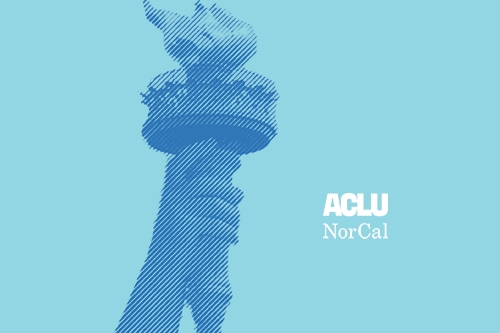Article Media

Oakland – On April 8, the ACLU of Northern California (ACLU-NC) and the Lawyers' Committee for Civil Rights of the San Francisco Bay Area (Lawyers' Committee) filed an amicus brief with the Alameda County Superior Court opposing a proposed gang injunction in Oakland.
Gang injunctions are court orders that attempt to address crime by using a lower legal standard than required by the criminal justice system. The proposed injunction filed by Oakland City Attorney John Russo on February 18 seeks to criminalize everyday activities within a 100 square block area of North Oakland. If granted, it would give the Oakland Police Department wide discretion to label people gang members without having to present any evidence to a judge or even charge them with a crime. The individuals impacted would not be provided with an attorney or given the opportunity to defend themselves.
"All of us are concerned about violent crime, but the issue here is that such injunctions are an ineffective response that can actually harm the communities they are intended to protect," said Jory Steele, Managing Attorney at the ACLU of Northern California. "This ill-conceived measure casts an overly broad net and has the potential to place probation-like restrictions on community members without convicting them of any crime."
ACLU-NC and the Lawyers' Committee are concerned that if the injunction sought by the City Attorney is granted, the negative impact on the community would include:
Refusal to identify suspects gives individual police officers too much discretion. This injunction would give police officers a roving warrant to designate someone a gang member, subjecting that individual to severe restrictions without ever having to present evidence to a judge. Police would be able to criminalize the daily activities of numerous individuals in the community. The injunction would also allow police to label anyone living in or visiting the 100-square-block area a gang member, without having to prove any wrongdoing.
The potential for racial profiling is severe. The proposed injunction provides no criteria for determining gang membership. Oakland police would be given wide discretion to label individuals as gang members because of what they look like, where they live, and who they know.
There is no way out of the injunction. The injunction does not include an opt-out provision for people who are misidentified or who have turned their lives around. If community members are wrongfully labeled as gang members, they would be bound indefinitely by the restrictions of the injunction.
The Oakland City Attorney has not established that the injunction will bring more good than harm to the community. The injunction does not provide exceptions for people bound by the injunction to take part in important activities such as work or community meetings. The injunction's broad prohibition of being in public with other alleged gang members has unintended consequences, particularly for people who are mistakenly indentified or who are trying to turn their lives around. For example, if two community members served with the injunction are riding the same bus on the way to school or are in the same grocery store, both are in violation of the court order and could be sent to jail. Additionally, the curfew provision would prevent the father of a young child from going to the pharmacy after 10 pm to purchase medicine for a sick child.
"By seeking a flawed injunction that covers such a large area of North Oakland, the City Attorney is essentially taking an entire neighborhood to court," said Kendra Fox-Davis, a staff attorney at the Lawyers' Committee. "There are already tools that law enforcement can use to keep our neighborhoods safe without placing whole communities under suspicion."
Gang injunctions have been proven to be an ineffective tool for protecting public safety. A number of studies, including a 2007report from the Justice Policy Institute and a 2007 report from the Advancement Project, have concluded that injunctions do not work, and that alternative public safety strategies are needed to ensure safe neighborhoods. The JPI report cites the example of cities like New York, which have reduced gang violence by funding social services to prevent violent crime and gang activity. On the other hand, Los Angeles has several gang injunctions and gang activity continues to rise.
Just days before City Attorney Russo filed the gang injunction, the City's Public Safety Commission expressed concerns about the benefit and costs of such a step. Since then, North Oakland community members have come together in opposition to the injunction and have begun educating and mobilizing their neighbors.
ACLU-NC has challenged gang injunctions since 1997, and worked with the Lawyers' Committee to challenge gang injunctions in San Francisco. Steele and Fox-Davis will attend the preliminary injunction hearing on Thursday, April 22.
Legal document
Amicus Brief (April 8, 2012)
